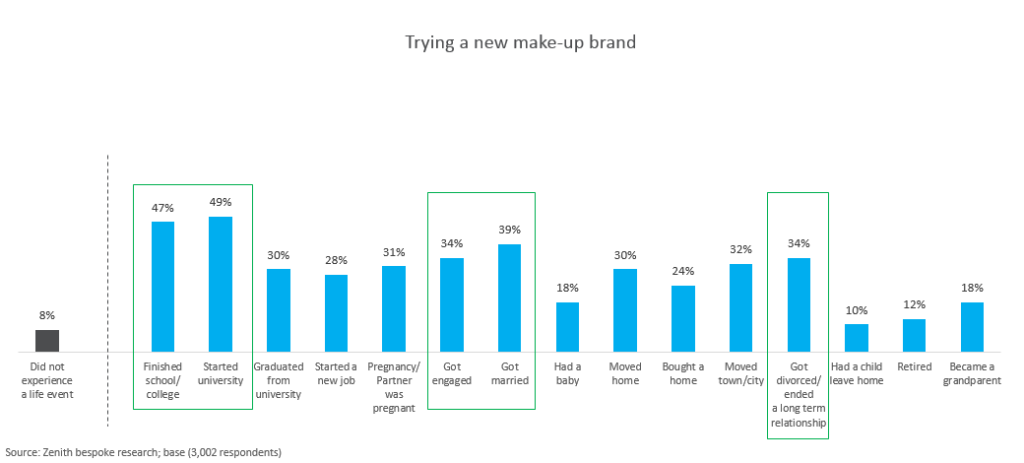In a world where consumers are constantly deluged with advertising, it’s now even more important to ensure that, as marketers, we optimise our targeting to reach audiences more effectively.
Academic evidence shows we are more likely explain a person’s behaviour based on internal traits like personality, underestimating the influence of external factors like the context that person is in. For example, we’re likely to assume someone pushing ahead on the tube is rude, rather than instead thinking they could be a nice person who’s in a particular hurry that day.
The same is evident in advertising, where situations can make a significant difference to how effectively an advert is received. Therefore, brands should pay just as much attention to the context their audience is in, and the moment in which their message is communicated, as to the audience themselves.
Research into ‘nine-enders’ (people approaching a new decade in their lives and aged 29, 39 etc), has shown they’re more likely to make significant changes. We wanted to understand whether this is also true of people going through other major life events like finishing school, going to university, starting a new job, getting married or having a baby, and whether these impact consumer behaviour and our openness to new brands.
What’s the evidence?
At Zenith, we’ve co-produced research investigating the power of communicating at appropriate life moments. We interviewed 3,002 people in the UK on a number of different topics including questions about them and their life recently, including brand behaviour – specifically, whether they have switched to or tried a new brand. Importantly, we ensured that we used an oblique approach. We didn’t ask people directly if they thought certain life moments affected their behaviour or brand choices. Instead, we asked them first whether they had experienced any major life events and followed up with questions about brand behaviours without explicitly linking the two. We then cut the results by those who had and had not undergone a major life moment and compared brand behaviours between the two groups.
The results were overwhelming. Across all nine categories we tested, consumers were more likely to try a new brand if they had gone through a life event. This likelihood more than doubled across over half of the categories we tested, including coffee shops, high street clothing and make-up.
How can marketers apply these findings?
By identifying the moments where consumers undergo some kind of life event, marketers can more finely tune their communications. Fortunately this can be done by social media platforms which can tell us if, for example, someone has graduated from university, started a new job or moved city.
Our research also identified which life events are more likely to impact on a consumer trying a new brand within a particular category, making the targeting even more effective.
An interesting example of this lies within the make-up category (see Fig. 1). Our research shows that someone who goes through a life event that involves relationship changes – romantic or otherwise – is more likely to be open to trying a new make-up brand, perhaps adopting an attitude of ‘new life, new me’. We can use this insight to target people who have updated their educational or relationship status with make-up activity, emphasising this point via appropriate messaging.
Fig. 1

The results highlight the opportunity that life moments can bring to brands. As targetable moments when people are receptive to trying new products, these opportunities are invaluable, particularly when acquiring new customers. Considering this alongside traditional targeting techniques could prove to be very powerful for brands.





Comments are closed.